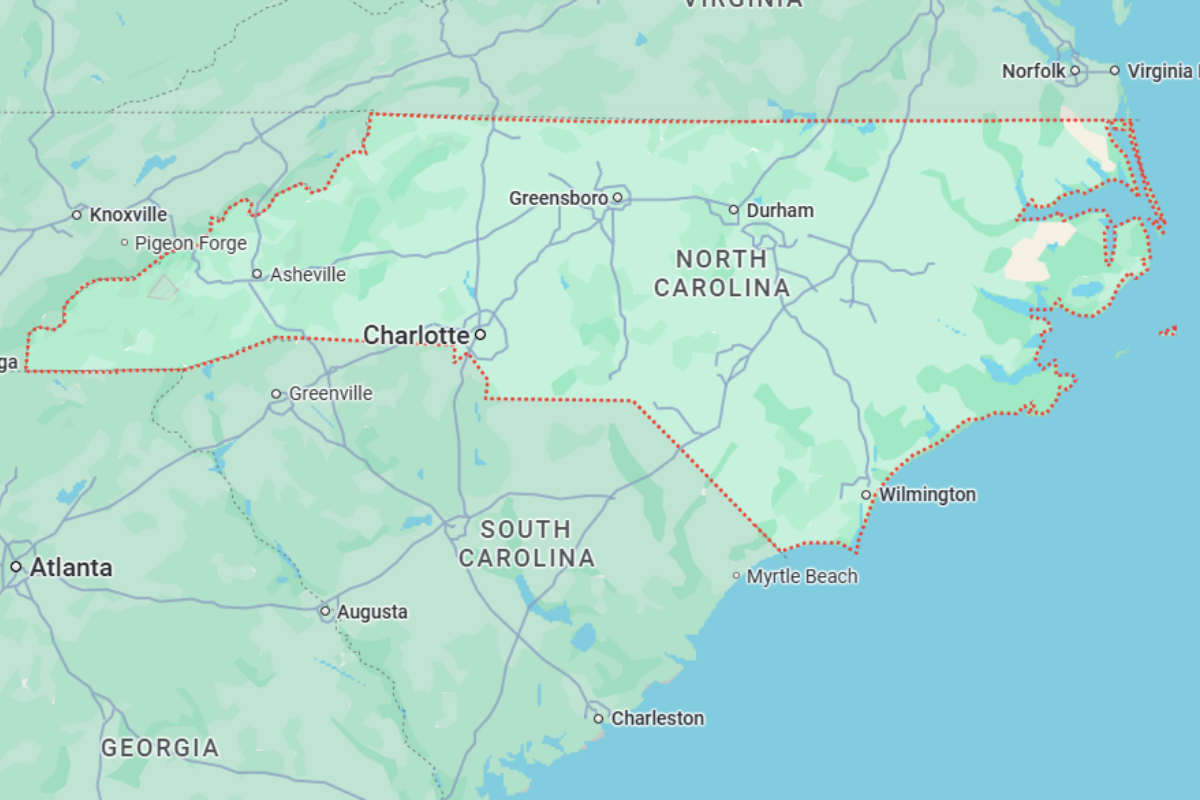North Carolina Lawsuit Loans
Get Cash While Your Case SettlesIf you're a plaintiff in North Carolina awaiting a lawsuit settlement, lawsuit loans can help ease your financial burden. These loans provide financial relief before case resolution, allowing you to cover essential expenses while your case progresses. You only repay if you win or settle, making it a risk-free way to manage pre-settlement hardship.
- Repay $0 If You Lose
- Get Cash In 48 Hours
- Lowest Rate
- Repay $0 If You Lose
- No Credit Check
- 24hr Funding



How to Apply for Lawsuit Funding in North Carolina
The Tribeca Lawsuit Loans application is quick and simple. We focus on North Carolina’s legal requirements to ensure plaintiffs get the funding they need without delay. Here’s how it works:
-
1
Start Your Journey with Us
Simply fill out our easy online application—no credit check needed—and get closer to the cash advance you need.
-
2
Let Our Team Evaluate Your Request
Our team reviews each case based on North Carolina’s legal requirements to determine eligibility for lawsuit funding.
-
3
Access the Money You Need
After approval, Tribeca advances funds to cover living expenses, including medical bills and other essential costs, with most clients getting their funding in as little as 24 hours!
Quick Reference Guide to Lawsuit Loans in North Carolina (NC)
In North Carolina, lawsuit loans can help plaintiffs manage financial burdens while awaiting the resolution of their cases. Here’s a quick overview of key factors related to lawsuit loans, insurance, and legal limits in the state:
| Factor | Details |
| Average Funding Per Case | Typically between $500 to $2,000,000 |
| Available Funding Amount | $500 – $2,000,000 |
| Fault Laws in North Carolina | Pure Contributory Negligence: Plaintiff is barred from all recovery if found to have contributed in any way (even 1%) to their own injury. |
| Statute of Limitations | Personal Injury: 3 years from the date of the injury (NC §1-52). |
| Minimum Policy Limits in NC | $50,000 for bodily injury (per person), $100,000 per accident |
| Minimum UIM Auto Insurance Limits | $50,000 per person / $100,000 per accident |
5 Star Reviews

Apply for Our North Carolina Lawsuit Loan Today!
With zero-risk repayment, capped fees, and non-compounding rates, Tribeca Lawsuit Loans provides predictable costs and no financial risk if you lose your case. You repay only if you win. Apply today for clear, transparent funding. Apply NowWhat to Consider When Selecting a Lawsuit Funding Company
When selecting a lawsuit funding provider in North Carolina, it’s crucial to choose one that understands the state’s unique legal landscape. Here’s why Tribeca stands out:
- Local Knowledge: Tribeca’s deep understanding of North Carolina regulations ensures you receive the most tailored and effective funding solutions.
- Transparent Terms: We offer clear, straightforward terms with no hidden fees or complex conditions, so you know exactly what to expect.
Fast Processing: With a quick, state-specific approval process, you can get the financial support you need in as little as 24 hours.
Our Customer Reviews
Are Lawsuit Loans Legal in North Carolina (NC)?
Yes, lawsuit loans are legal in North Carolina, but they are not specifically regulated by state laws. Instead, they are subject to general consumer finance laws, which influence how interest rates are set. In the Odell v. Legal Bucks, LLC case, the Court of Appeals ruled that pre-settlement funding is considered a loan, which means it may be subject to usury laws in certain circumstances.
Loans under $25,000 are generally capped by North Carolina’s consumer finance laws, while advances exceeding $25,000 may have uncapped rates, as agreed upon by both parties. These loans are non-recourse, meaning repayment is required only if your case is won or settled. They do not affect lawsuit control, so you retain authority over your case.
Tribeca Lawsuit Loans offers transparent terms, with funding that does not require employment verification or a credit check, simplifying the process for plaintiffs in North Carolina. Always consult your attorney to review the terms and ensure all fees are fully disclosed, especially for larger advances.
Types of Cases that Qualify for Lawsuit Loans in North Carolina
With Tribeca Lawsuit Loans, you can pursue fair compensation without the financial strain. We assist plaintiffs with pending litigation in various cases, including:Are There Risks To Taking out a Lawsuit Loan in NC?
While lawsuit loans are legal in North Carolina, they may come with risks. Some lenders may charge high interest rates, resulting in a higher repayment amount that could reduce your final settlement amount. North Carolina lacks strong regulations to protect borrowers from predatory lending practices.
Remember, lawsuit loans are non-recourse under certain conditions, meaning you don’t pay if you lose your case. However, fees can accumulate, reducing the final settlement amount.
Before signing any agreement, always read the terms carefully and consult with your attorney to ensure you fully understand all repayment obligations.
Can You Gain an Edge by Using a North Carolina-Based Lawsuit Funding Company?
Choosing a North Carolina-based lawsuit funding company like Tribeca offers many benefits, such as:
- Familiarity with state regulations
- Faster communication with local attorneys
- Easier coordination with your legal team
- Knowledge of NC’s legal funding disclosure requirements
Tribeca’s proximity and local expertise make the approval process faster and smoother, ensuring the process is tailored to local legal frameworks.
What Happens if I Lose My Case?
A common concern is that you could end up losing more money by taking a lawsuit loan than if you hadn’t taken the funding. Fortunately, lawsuit loans are non-recourse, meaning you only repay if you win or settle your case. If you lose, you owe nothing.
However, fees can accumulate over time, which may reduce your final settlement amount. It’s essential to carefully review all loan terms with your attorney before proceeding, ensuring you fully understand the costs involved and avoid any unexpected financial burdens.
Why Choose Tribeca in North Carolina (NY)

Fast Approval
Get approved in as little as 24 hours to cover your expenses.
Funding Up to $2 Million
We offer a wide range of loan amounts based on your case’s value.
Clear Terms
No hidden fees or surprise charges.
Flexible Repayment
Repay only if you win or settle your case.
No Upfront Fees
You won’t pay anything until your case is settled.Lawsuit Funding Regulations in North Carolina
North Carolina strictly regulates pre-settlement funding. In Odell v. Legal Bucks, LLC, the court ruled that pre-settlement advances are considered loans and subject to usury laws.
Pre-settlement funding is regulated by consumer finance laws, including interest rate caps for loans under $25,000. To avoid these rules, some companies offer only advances of over $25,000, where interest rates are not capped. Loans are reviewed for usury compliance, ensuring they adhere to state regulations.
Plaintiffs should consult their attorney to review the contract and ensure all fees are disclosed to avoid unexpected costs, especially since advances over $25,000 are not regulated
Apply Today
"*" indicates required fields
Get Lawsuit Funding in These States
What Are the Hidden Fees in NC Lawsuit Loans?
Some legal funding companies in North Carolina may charge hidden fees like application, underwriting, or compounding interest that aren’t clearly disclosed. With no strict regulations on lawsuit loan fees, costs can vary widely between lenders, leading to unclear pricing.
Always ask for a full breakdown of costs, including how interest is calculated and whether it’s compounding. Tribeca offers transparent terms with no hidden fees.
Before signing any agreement, consult with your attorney to review contract language and avoid deceptive terms related to repayment obligations and fees.

Lawsuit Funding Availability in North Carolina (NC)
Tribeca offers legal funding statewide, including the following cities and towns near you:- Concord
- Durham
- Fayetteville
- Gastonia
- Goldboro
- Greensboro
- Greenville
- Hickory
- High Point
- Huntersville
- Indian Trail
- Jacksonville
- Kannapolis
- Raleigh
- Rocky Mount
- Wilmington
- Wilson
- Winston Salem
How Much Funding Can I Qualify For?
The amount of lawsuit funding you can qualify for depends on the type of case, the strength of your claim, and the anticipated settlement amount. Generally, legal funding companies will advance 10% to 20% of your case’s estimated value.
For example:
- Personal Injury Cases: Typically range from $500 to $250,000.
- Car Accidents: Can qualify for funding between $1,000 to $1 million.
- Medical Malpractice: Funding may range from $5,000 to $2 million.
- Wrongful Death: Can qualify for $50,000 to $2 million.
The amount is based on case strength, with higher funding available for cases involving catastrophic injuries, wrongful death, or clear medical malpractice.
- No Credit Check
- 24hr Funding
Get Started Today
Fill out the form for a free consultation and quote. Get cash as soon as 24 hours of approval."*" indicates required fields

